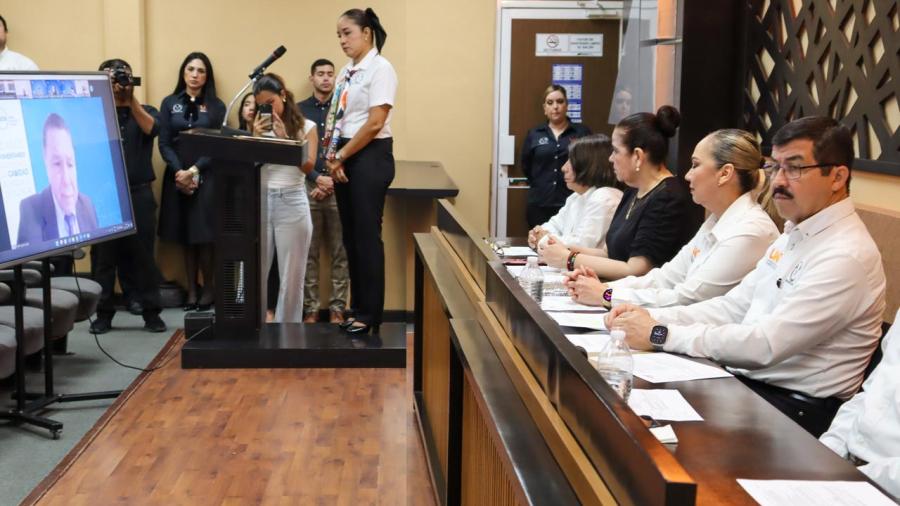Tampico, Tamaulipas.- This educational program, taught online through the Faculty of Architecture, Design and Urban Planning (FADU), was evaluated by the Interinstitutional Committees for the Evaluation of Higher Education (CIEES) for three days in virtual mode.
The rector of the UAT, Dámaso Anaya Alvarado, launched the evaluation work accompanied by the director of the FADU, Lisbeth América Brandt García, where he welcomed the members of the CIEES, Dr. José Alberto Gaytán García, the Mrs. Estephania Samperio Ruiz, the Mtro.
Eduardo Blanco Bocanegra, the Mtro. Luis Daniel Herrera Romero and Dr. Roberto Arturo Sánchez Herrera, who represent various institutions and universities in the country.
In his opening message, the rector highlighted that these processes demonstrate the UAT’s commitment to offering educational programs of excellence that respond to the demands of the current labor market.
He stated that the certification of the Bachelor’s Degree in Graphic Design and Digital Animation reflects the clear determination to offer society a relevant and quality educational offer, and stressed that the work will be reinforced to ensure that all degrees reach the highest quality standards. .
For her part, the director of the FADU, Lisbeth América Brandt García, commented that this degree, due to its distance modality, contributes to the reduction of inequality – another of the priority objectives of the UAT -, in addition to offering its students the opportunity to work and study simultaneously.
The CIEES are an organization created in 1991 with the objective of evaluating and accrediting the quality of higher level educational programs in Mexico.
How can institutions effectively assess and ensure the quality of online education programs in comparison to traditional classroom settings?
1. Could you please provide an overview of the educational program being evaluated, its significance, and how it has been adapted to meet the changing needs of students and the workforce?
2. What factors are crucial in ensuring that online education programs maintain the same level of quality as traditional classroom-based learning?
3. How do you think the evaluation process impacts the reputation of the institution and its ability to attract new students and partnerships?
4. In what ways can distance learning programs help reduce inequality in access to education and contribute to social mobility?
5. What are some challenges that online education programs face in terms of student engagement, faculty support, and technological infrastructure?
6. Can you share some best practices or strategies that can help maintain academic integrity and prevent plagiarism in online learning environments?
7. What role do industry partnerships and accreditation play in the success of online education programs?
8. How do you envision the future of online education, particularly in the context of the COVID-19 pandemic, which has accelerated its adoption globally?


